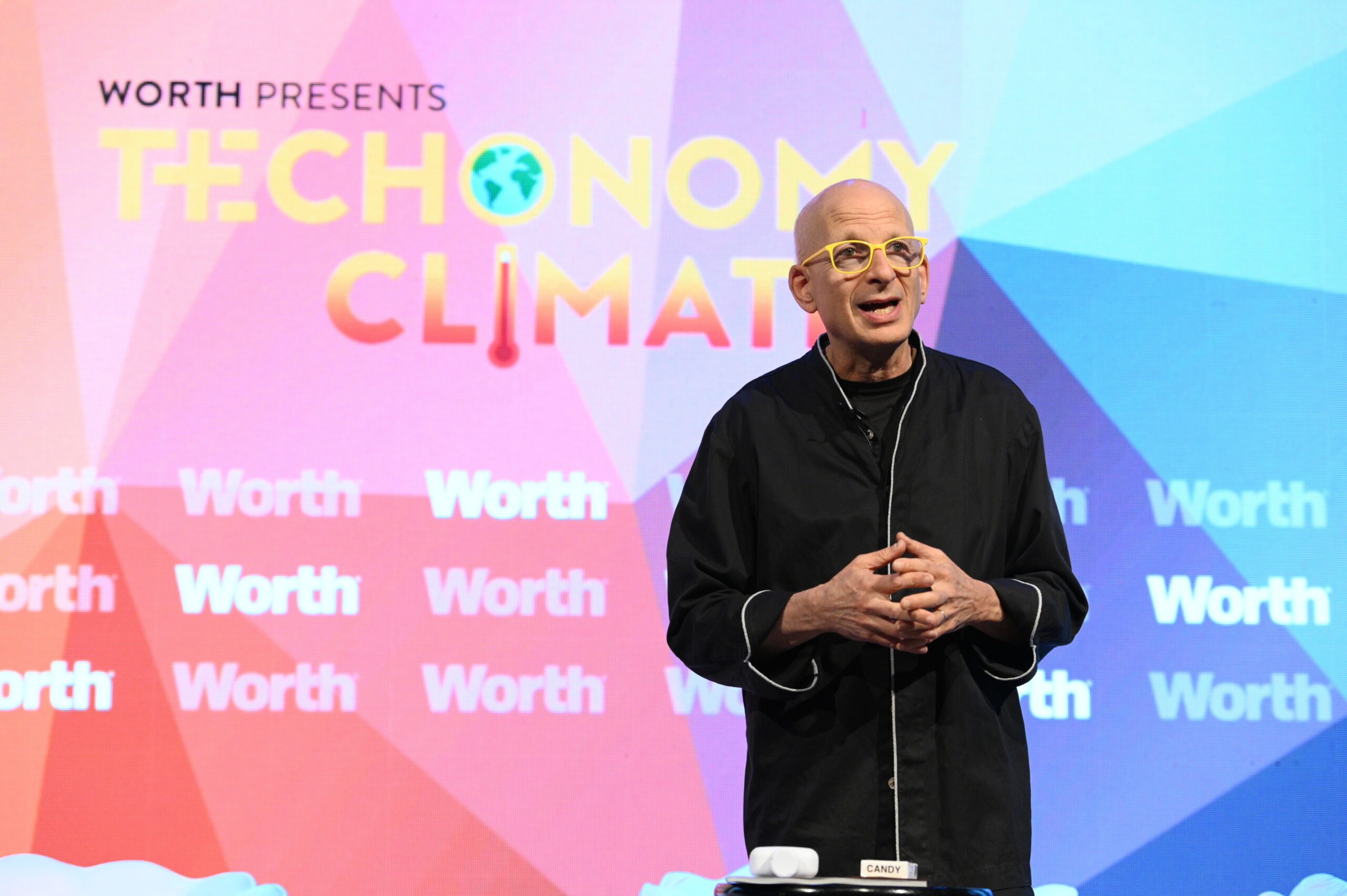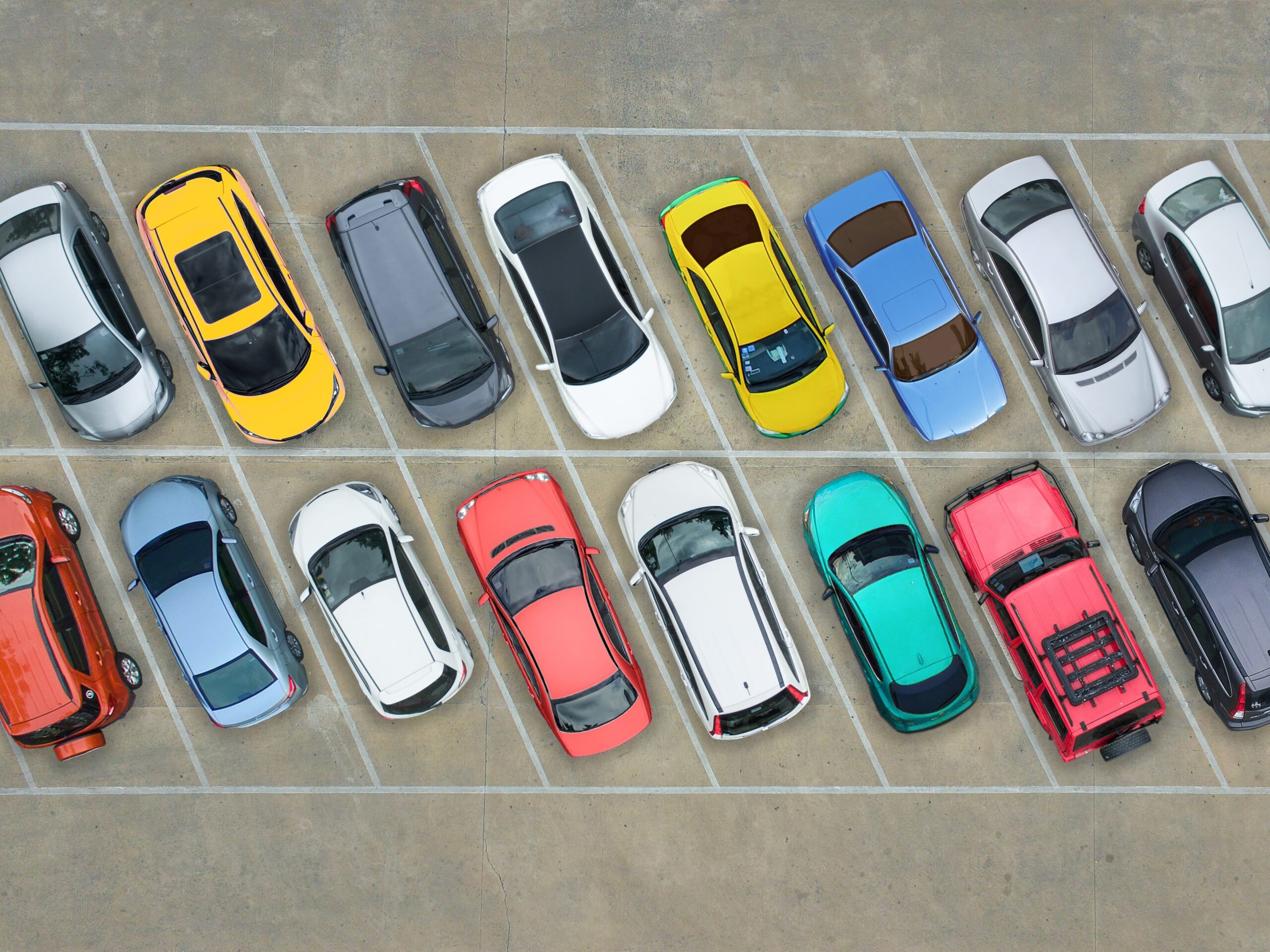According to entrepreneur Seth Godin, tackling climate change doesn’t have to be complicated. It will, however, be difficult. Godin argues that corporate complacency and misdirected individual efforts are climate mitigation’s two biggest sticking points right now. To tackle them effectively, he believes that we need to embrace a “simple and hard” solution: Simply stop subsidizing carbon-hungry industries.
Godin, who created The Carbon Almanac, and appears in the latest issue if Worth joined joined the Techonomy Climate NYC: Solutions That Scale conference. There, he gave a talk entitled “The Super Simple Solution.” As promised, his suggestion to mitigate climate change was about as straightforward as they come. The trouble, though, is that “simple” does not equate to “easy.”
Toward the beginning of his talk, Godin described humanity’s attitude toward climate change as being “between a rock and a hard place.” The rock is the fact that Western society has accepted “I’m just doing my job” as a valid excuse for causing harm, whether it’s promoting deadly cigarettes or filling the atmosphere with carbon dioxide. The hard place is that people erroneously believe that individual contributions—composting, going vegetarian, buying electric cars, and so forth—are the key to solving climate change.
These beliefs, Godin explains, are “easy and complex.” They’re easy, because they allow people to maintain the status quo, perhaps with only a few minor adjustments. They’re complex, because it’s tempting to get in the weeds about the details.
(What, for example, is “enough” of a lifestyle change to reduce your carbon footprint? And on top of that, “carbon footprint” is a longstanding bit of misdirection from British Petroleum. The company introduced the term in 2004 to make it seem as though everyday people, rather than big fossil fuel companies, were primarily responsible for mitigating climate change.)
Godin’s proposed solution is simple, as it advocates a single, comprehensible, and practicable idea. It’s hard, however, because it would involve a sustained campaign against some massive, powerful, and entrenched interests.
“The market is going to solve this problem when we price carbon fairly,” he said. “Last year, we subsidized the oil and gas industry $7 trillion. In the U.S. alone, in the last 25 years, tax dollars—$50 billion—just to support the price of beef.”
(Raising cows for meat is a huge contributor to climate change.)
Without subsidies to carbon-heavy industries, Godin believes that green projects will become both cheaper and more convenient. Another big advantage of this plan is that it doesn’t force everyday consumers to do anything. When the prices of goods and services reflect their actual value, consumers will choose greener options simply to save money. As an example, Godin cites solar energy, which is currently less expensive than ever before.
“Solar is a homerun,” said Godin. “It’s cheaper and more convenient. But we need to do that in 100 different places … People want to make a choice. They want to make choices; they want the freedom to make choices. They don’t want to be told what to do. And they will make better choices when we accurately reflect the price, the cost, of what we’re using.”








